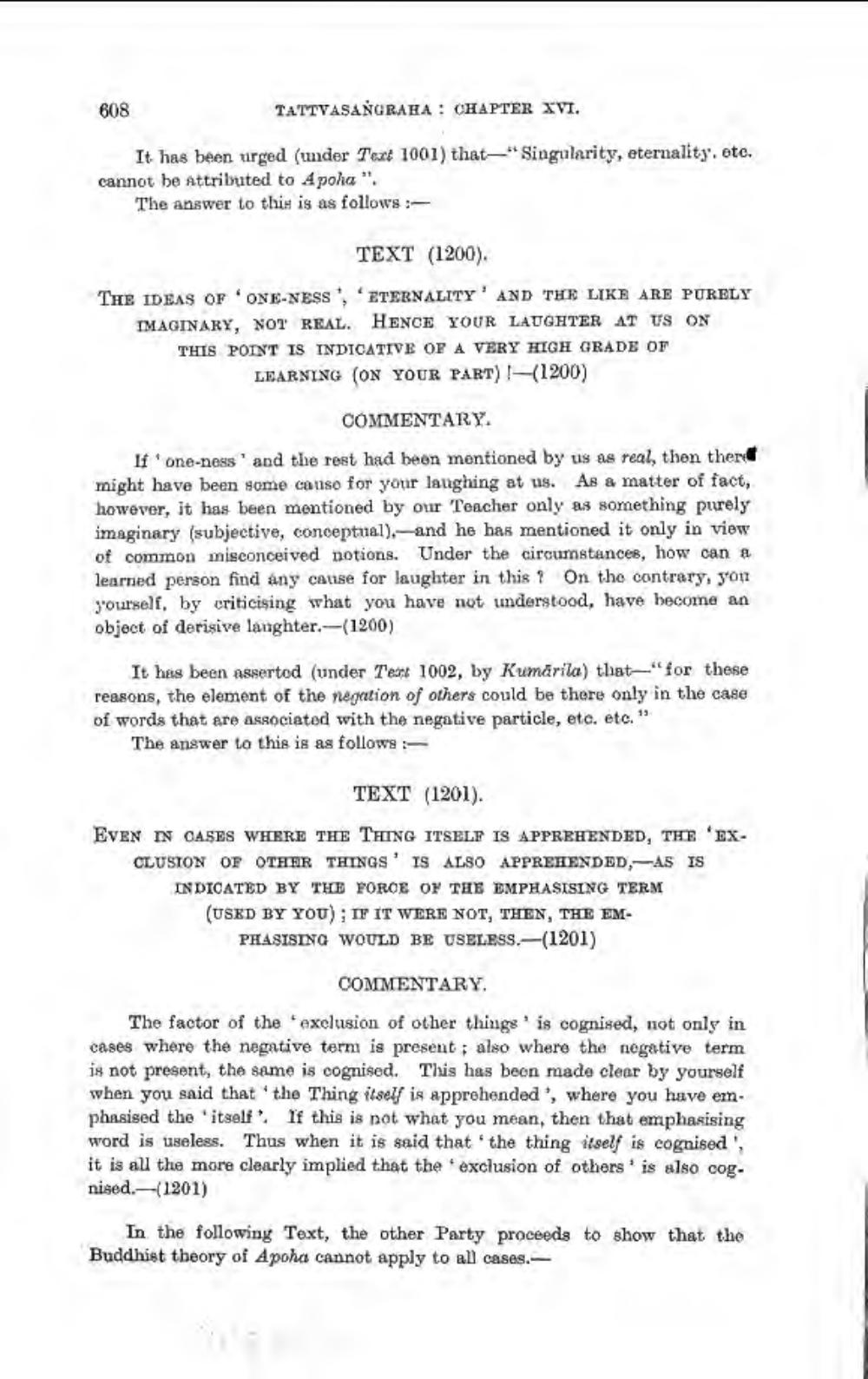________________
608
TATTVASANGRAHA : CHAPTER XVI.
It has been urged (under Text 1001) that-*Singularity, eternality, etc. cannot be attributed to 4 poha".
The answer to this is as follows:
TEXT (1200),
THE IDEAS OF ONE-NESS ETERNALITY AND THE LIKE ARE PURELY IMAGINARY, NOT REAL. HENCE YOUR LAUGHTER AT US ON THIS POINT IS INDICATIVE OF A VERY HIGH GRADE OF
LEARNING (ON YOUR PART) (1200)
COMMENTARY.
If one-ness' and the rest had been mentioned by us as real, then thered might have been some cause for your laughing at ns. As a matter of fact, however, it has been mentioned by our Teacher only as something purely imaginary (subjective, conceptual), and he has mentioned it only in view of common misconceived notions. Under the circumstances, how can a learned person find any cause for laughter in this ? On the contrary, yon yourself, by criticising what you have not understood, have become an object of derisive laughter.-(1200)
It has been assertod (under Test 1002, by Kumärila) that,"for these reasons, the element of the negation of others could be there only in the case of words that are associated with the negative particle, etc. etc."
The answer to this is as follows
TEXT (1201). EVEN IN CASES WHERE THE THING ITSELF IS APPREHENDED, THE EXCLUSION OF OTHER THINGS' IS ALSO APPREHENDED, AS IS INDICATED BY THE FORCE OF THE EMPHASISING TERM (USED BY YOU); IF IT WERE NOT, THEN, THE EM
PHASISING WOULD BE USELESS.-(1201)
COMMENTARY
The factor of the exclusion of other things 'is cognised, not only in cases where the negative term is present : also where the negative term is not present, the same is cognised. This has been made clear by yourself when you said that the Thing itself is apprehended', where you have ernphasised the 'itself'. If this is not what you mean, then that emphasising word is useless. Thus when it is said that the thing iself is cognised', it is all the more clearly implied that the exclusion of others is also cog. nised.—(1201)
In the following Text, the other Party proceeds to show that the Buddhist theory of Apoha cannot apply to all cases.




